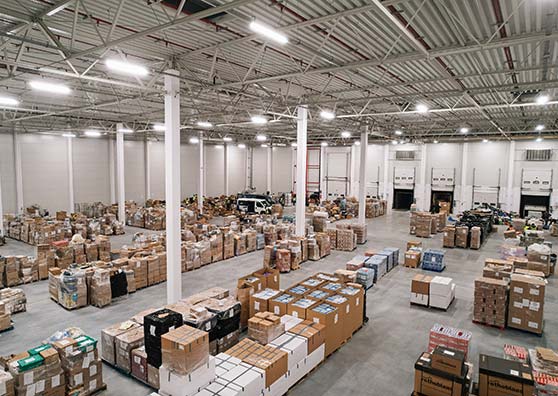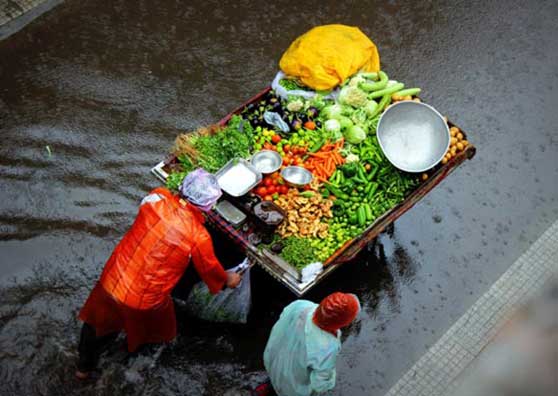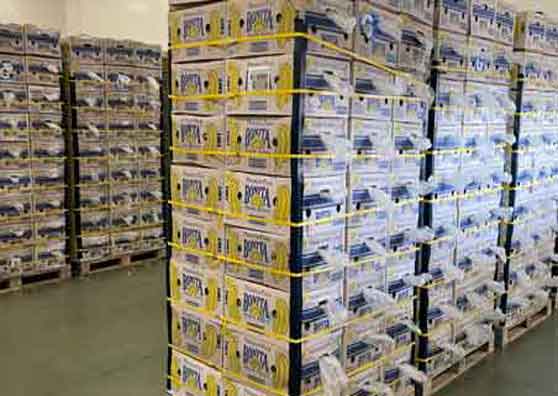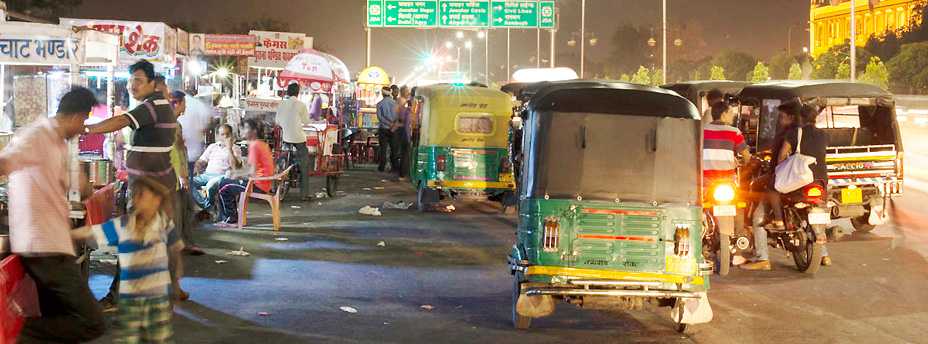 In Jaipur, new streetlights have improved night visibility, increased residents’ safety, and reduced maintenance costs. © IFC
In Jaipur, new streetlights have improved night visibility, increased residents’ safety, and reduced maintenance costs. © IFC
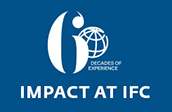 For 15 years, Ravi Saini has sold fruits from his small pushcart, which he parks every day on the same stretch of road in Jaipur, the capital city of Rajasthan state in India. Until recently, he wound up business at sundown. Now he stays open until 11 p.m.—and the extra income is changing his life.
For 15 years, Ravi Saini has sold fruits from his small pushcart, which he parks every day on the same stretch of road in Jaipur, the capital city of Rajasthan state in India. Until recently, he wound up business at sundown. Now he stays open until 11 p.m.—and the extra income is changing his life.
“There is so much bright light on the streets,” Saini says. “I didn’t expect it would make a difference to my business but it has. It is easier for people to spot me now and they stop their vehicles to buy my fruits.”
Brighter streetlights helped Ravi Saini boost his income. © IFC
That happened because of an IFC-facilitated project to modernize Jaipur’s streetlights. With support from DevCo, a multi-donor facility affiliated with the Private Infrastructure Development Group, we helped the government of Rajasthan structure a competitively bid public-private partnership that converted the city’s dim and failure-prone streetlights to modern energy-efficient LED lighting. The result? Energy consumed by Jaipur’s streetlights declined by 70 percent, lighting levels improved, and it made a huge difference to the lives of the city’s residents.
IFC previously helped structure a similar PPP for Bhubaneshwar, the capital of the state of Odisha, on India’s eastern coast. There too, citizens now enjoy brighter lights, better night visibility, and increased safety. The Bhubaneshwar project was so successful that the Odisha state government has asked IFC to structure similar PPPs for four other major cities in the state. IFC’s involvement in the lighting projects in Jaipur and Bhubaneshwar has benefited 3 million people.
There are 35 million streetlights across India. Most are still out of date. In general, about one in three lamps do not function at all. This causes serious problems for city traffic, safety risks for residents and visitors, and an adverse impact on businesses and tourism—especially in a city like Jaipur, a major international tourist destination.
Brighter Lights, Lower Costs
In 2012, the Jaipur Municipal Corporation (JMC) engaged IFC as the lead transaction adviser to structure the PPP project to finance, upgrade, operate, and maintain a public-lighting system consisting of more than 100,000 streetlights. A consortium led by a large Indian energy-services company and LED-light manufacturer—Samudra—won the bid for a 10-year energy-performance contract.
Between 2014 and 2015, Samudra invested approximately $12 million to retrofit at least 70,000 streetlamps with energy-efficient LED lamps. The new infrastructure is being completely paid for by savings on energy costs. Just one year after completion, the project has cut energy costs by more than 75 percent.
“The brightness of the streetlights has increased two to three times, and the cost of maintenance is now one-third of what it was before,” says Mahesh Sharma, JMC’s manager for the project. “The most important outcome is the huge energy savings. This project is a great example of innovation and partnership in the urban infrastructure space and we value IFC’s support.”
Jaipur’s new streetlight system integrates automation and other intelligent features for greater efficiency. “We established a central control room and call center for a faster outage response and to address customer complaints and queries,” says Prafulla Thote, Managing Director at Samudra LED Lighting. “In case of an emergency, we can switch off all lights in an area with just one click. Earlier, we had to manually switch them off one by one.”
Jaipur and Bhubaneshwar are each saving $1 million a year in costs. Together, they are expected to reduce greenhouse-gas emissions by 36,750 metric tons a year—equivalent to taking nearly 8,000 passenger cars off the road.
“We realized that making our streetlights energy-efficient was one of the quickest and most cost-effective opportunities to save energy and reduce costs and associated greenhouse-gas emissions,” says Rakesh Sharma, Additional Commissioner at JMC.
To learn more about IFC’s work in PPPs, visit www.ifc.org/ppp
Stay connected: #6DecadesOfExperience
Published in January 2017
